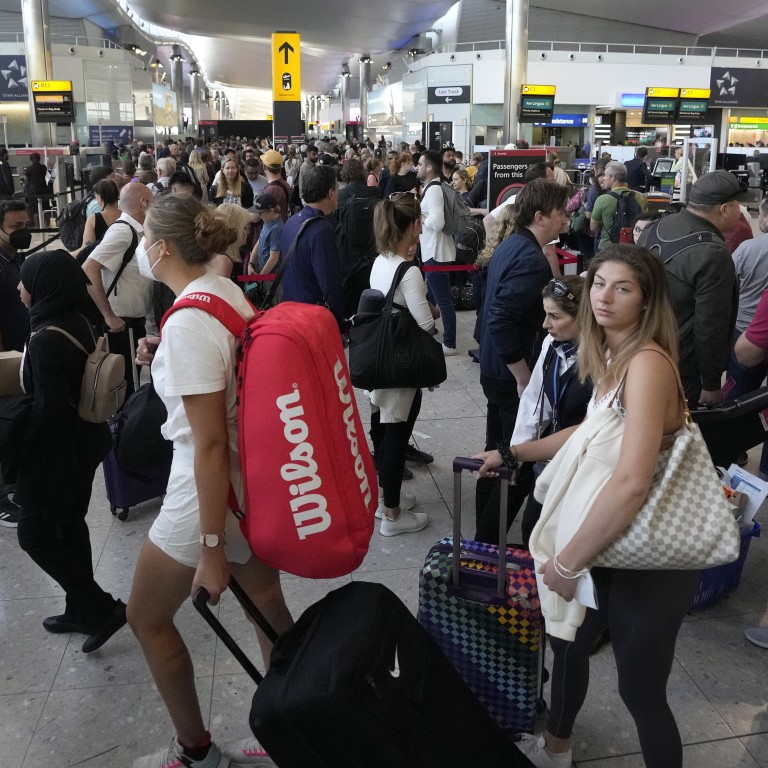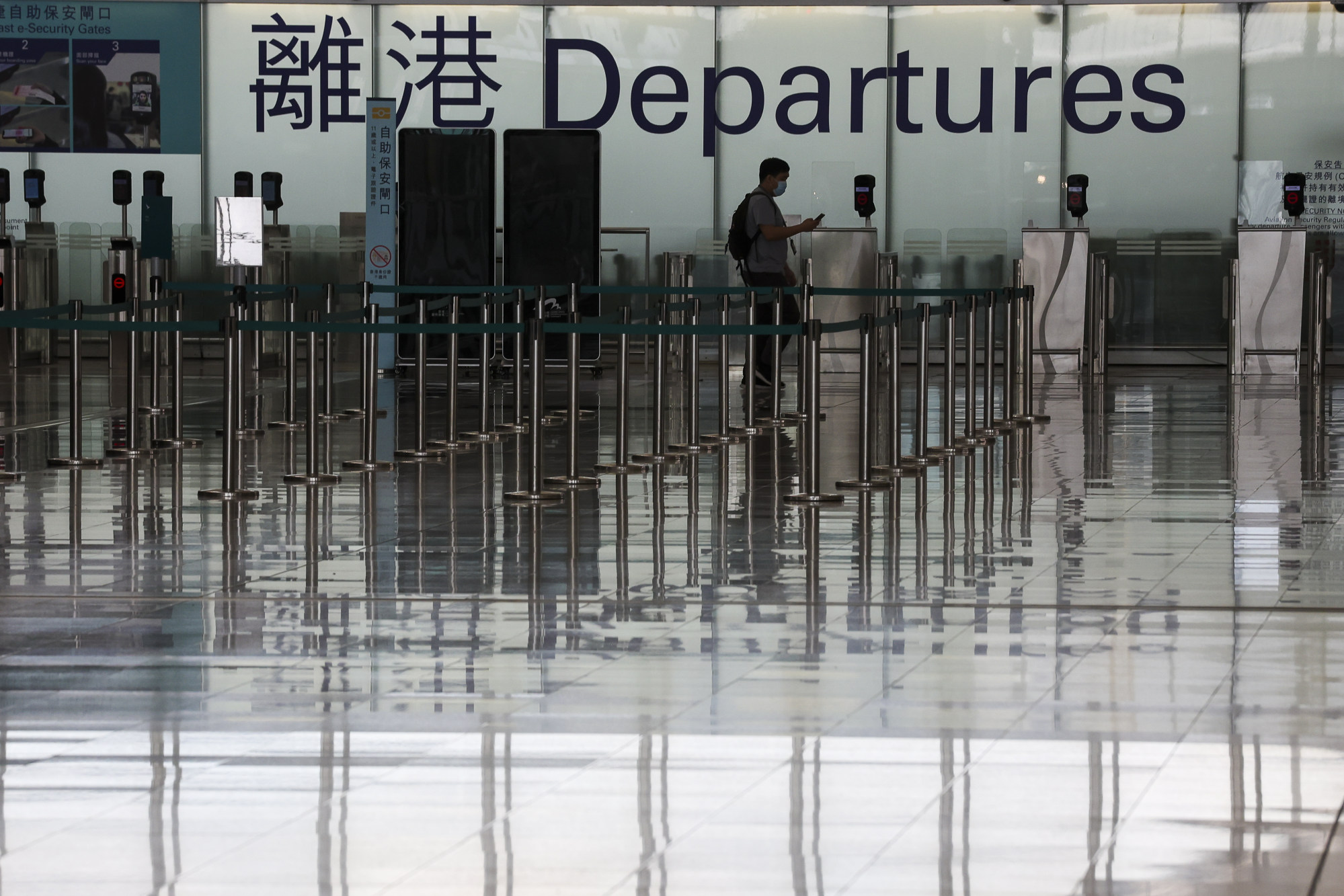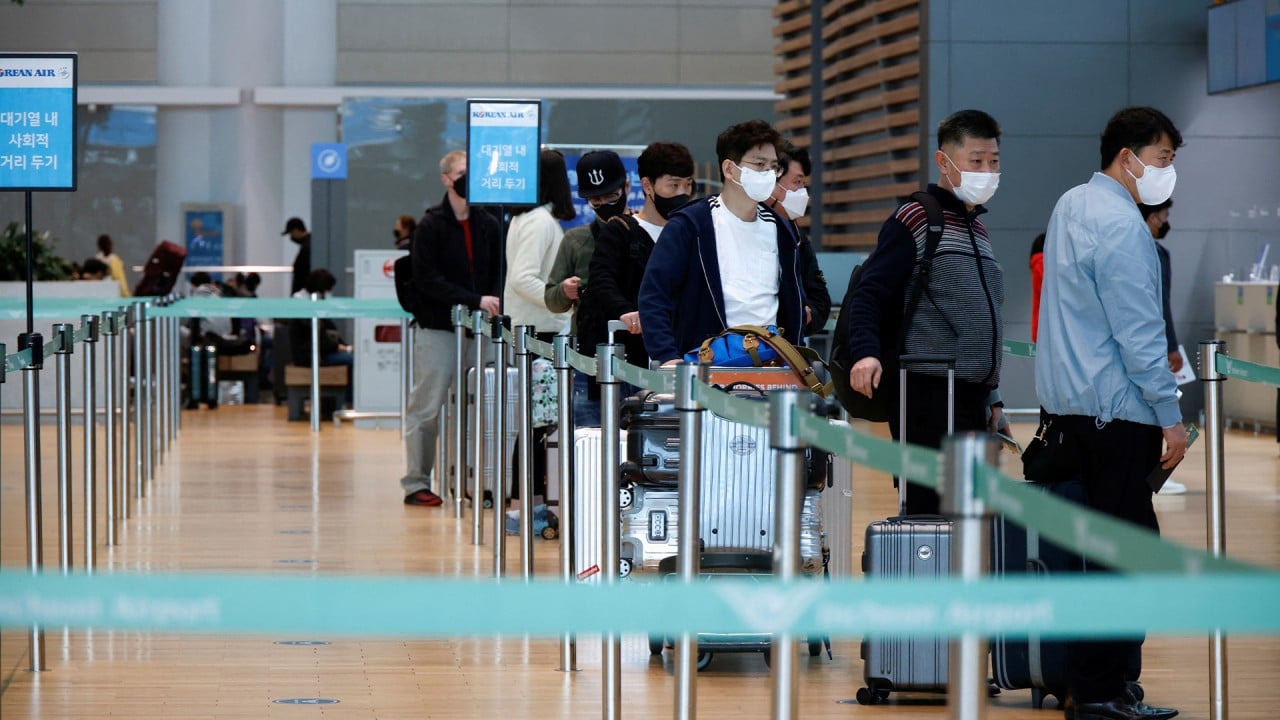
US, Europe travel chaos a preview of the pain and indignities to come for Asia
- Those pining for a resumption of international air travel should be careful what they wish for as delays, restrictions and higher prices are on the way
- A full global recovery is unlikely until China’s airlines and air travellers return, an outcome made less likely by Beijing’s strict ‘zero-Covid’ policy
But I fear that our guilty pleasure watching other travellers’ pain will be short-lived and we should be careful what we wish for. The odds are high that we in Asia will stumble into the same recovery quagmire as our own airlines and airports struggle to restore services when recovery eventually begins.
Before we start to celebrate the imminent resumption of international air travel, it is important to pause and recognise that whatever the pains and indignities we bemoaned back in innocent pre-pandemic days, worse is to come.
Losses across the industry have been staggering. The UN World Travel Organization calculates that the global tourism industry has lost more than US$2 trillion so far since the onset of the pandemic.
The uncomfortable reality is that the global aviation industry is a shadow of its former self, even where recovery is being celebrated. The International Civil Aviation Organisation reports that 2.3 billion passengers flew in 2021, up on 2020 but far short of the 4.5 billion in 2019.
Asian air travel could take 3 years to recover from coronavirus pandemic
Since then, China’s international travellers have all but disappeared. For example, Chinese tourist arrivals in the US peaked at around 3.2 million in 2017 but slumped to less than 200,000 in 2021. Chinese university students in the US – whose numbers soared from 60,000 in 2000 to more than 370,000 in 2019 – fell to around 317,000 in 2020.
A full global recovery is unlikely until China’s airlines and air travellers return, which perhaps accounts for the frustration felt by IATA head Willie Walsh over China maintaining its economically punishing lockdowns. “Government border closures create economic pain but deliver little in terms of controlling the spread of the virus,” he said in Doha. “There are no circumstances where the human and economic costs of further Covid-19 border closures could be justified.”

However clear IATA’s cautious optimism on recovery, downside risks remain numerous and powerful. As Qatar Airways CEO Akbar Al Baker said, “We are not out of the woods.”
The airline chaos across the US and Europe last week is just one piece of evidence as airport and airline staff seek better compensation after two years of acute hardship. Fuel prices are up 40 per cent in the past year, adding 15 to 20 per cent to most airlines’ operating costs and pointing to higher ticket prices.
So as we sit grounded in Hong Kong, it is important to retain a sober recognition of the pains and indignities to come. Our airports will continue to be snarled. Safe and trusted travel will be restored, but only at the price of longer queues, more trials of patience and more security processes and protocols.
The price of these pains and indignities to come will be higher than ever. Welcome back to the unfriendly skies.
David Dodwell researches and writes about global, regional and Hong Kong challenges from a Hong Kong point of view


